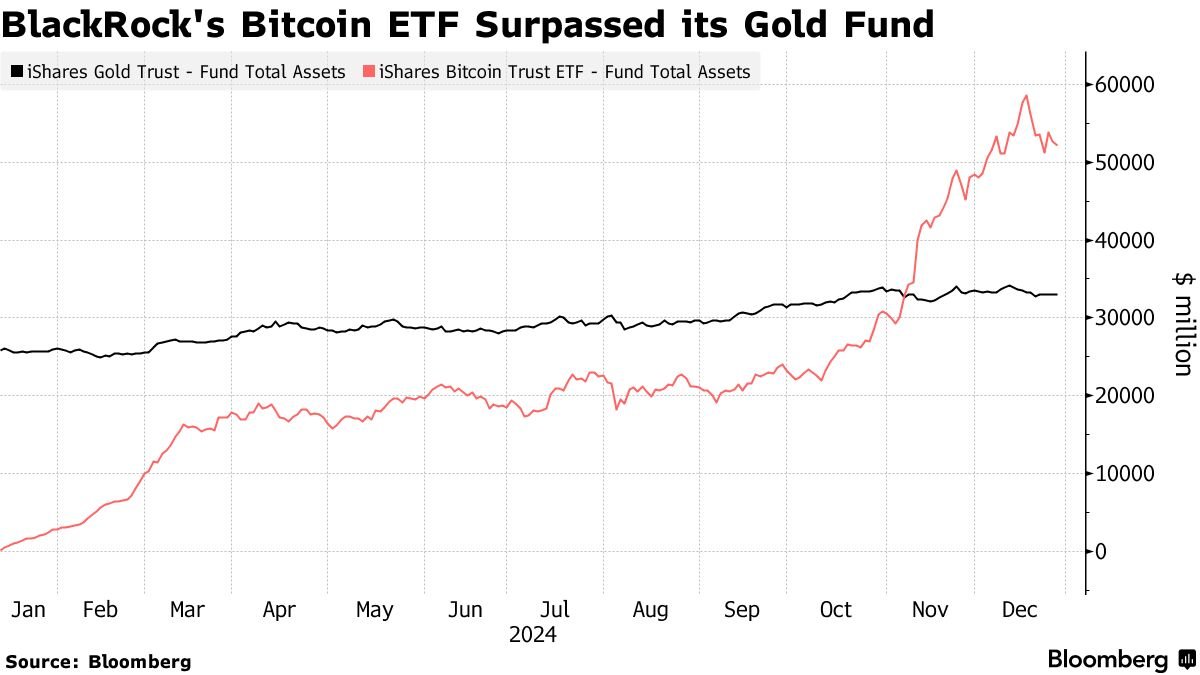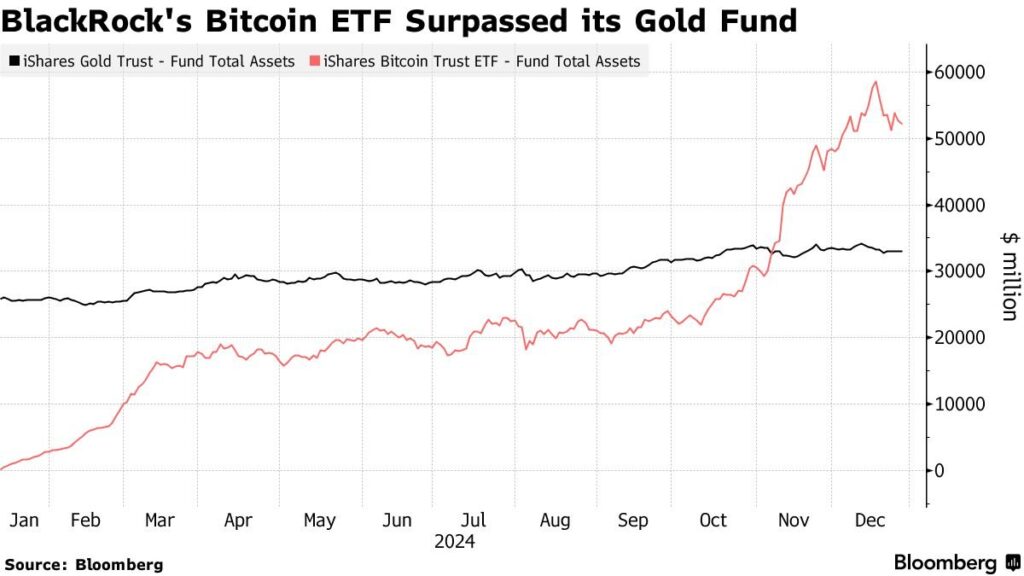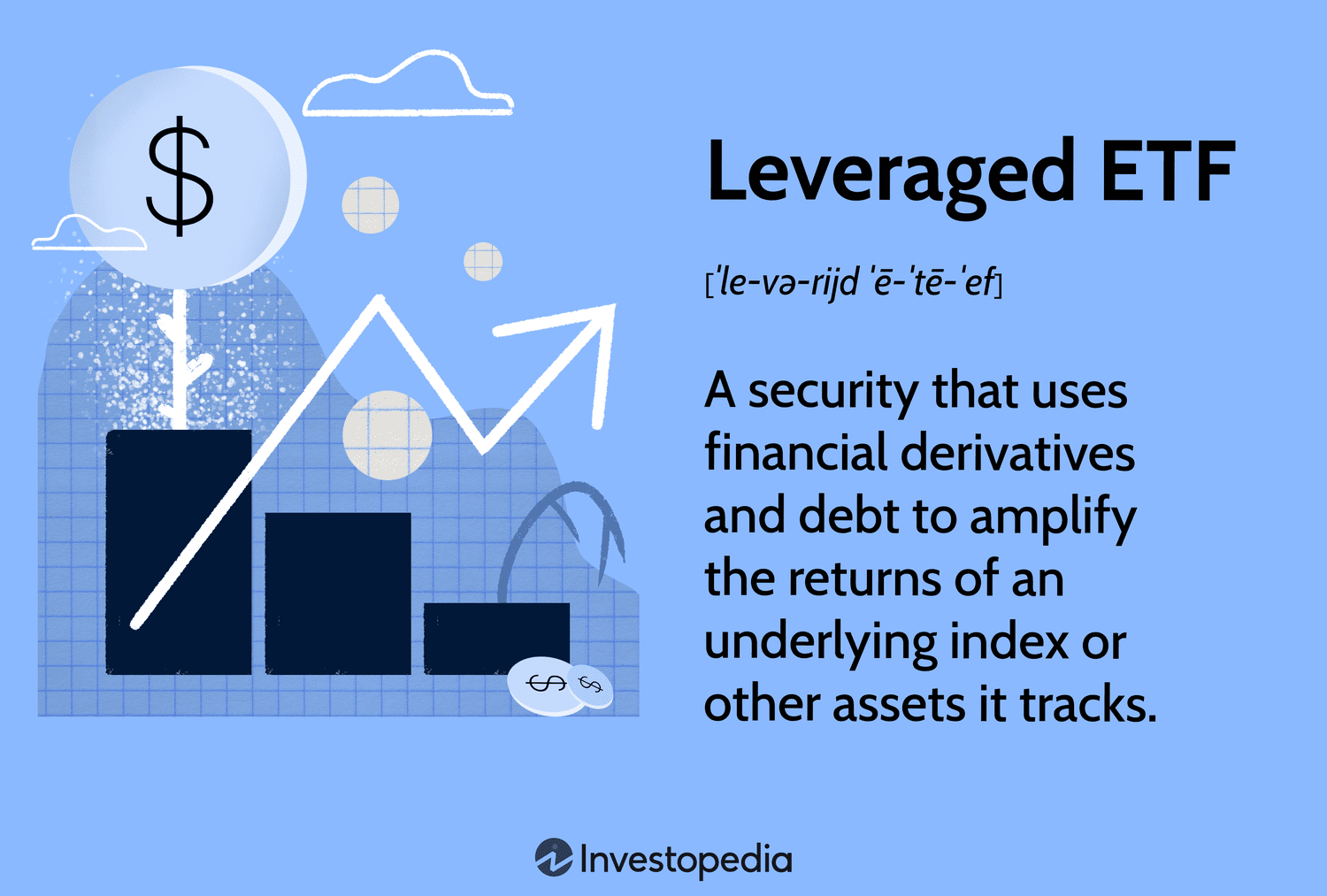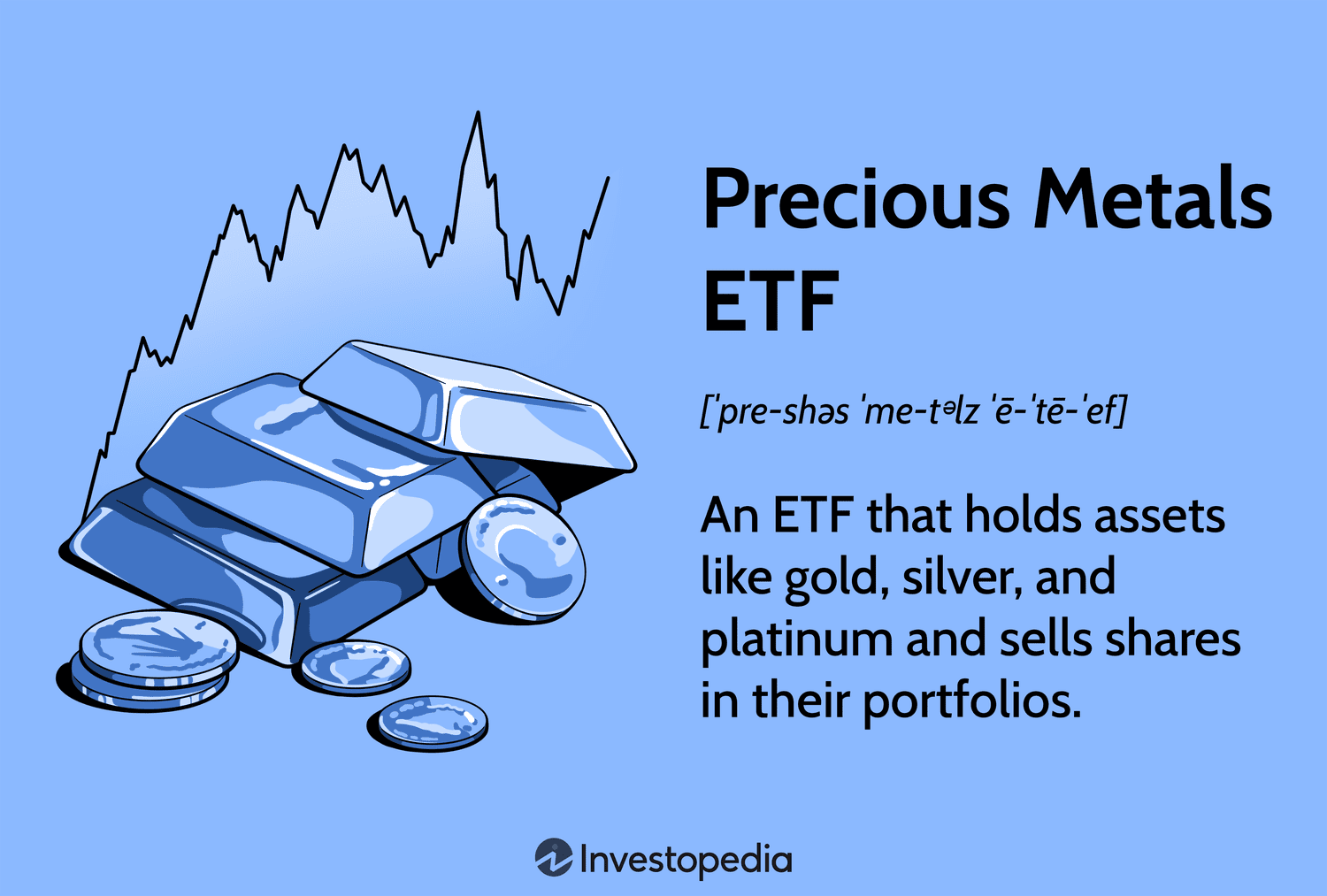

BlackRock, the world’s largest asset manager, has seen a significant shift in investor preferences as its iShares Bitcoin Trust ETF has surpassed its long-standing iShares Gold Trust in total assets. This milestone underscores the growing demand for digital assets and highlights Bitcoin’s increasing role in institutional portfolios.
The surge in Bitcoin ETF assets compared to the relatively stable gold ETF assets marks a pivotal moment in financial markets. This article explores the reasons behind this shift, its implications for traditional investments like gold, and what it means for the future of asset allocation.
Implications for Investors and the Financial Market The surpassing of BlackRock’s gold ETF by its Bitcoin ETF has far-reaching implications for asset allocation and portfolio diversification. It signals a shift in investor behavior, where digital assets are increasingly seen as legitimate components of a diversified portfolio.
For investors, this development presents both opportunities and risks:
- Increased Portfolio Diversification: Bitcoin ETFs offer exposure to a new asset class that behaves independently from traditional markets.
- Volatility Considerations: Unlike gold, Bitcoin is highly volatile, which may deter risk-averse investors.
- Regulatory Uncertainty: While regulatory approval has boosted institutional interest, future policies could impact Bitcoin’s long-term viability as an investment.
For financial markets, this trend underscores the need for asset managers to adapt to evolving investment preferences. Traditional financial institutions are now integrating digital assets into their offerings, further legitimizing Bitcoin as an investable asset.



















